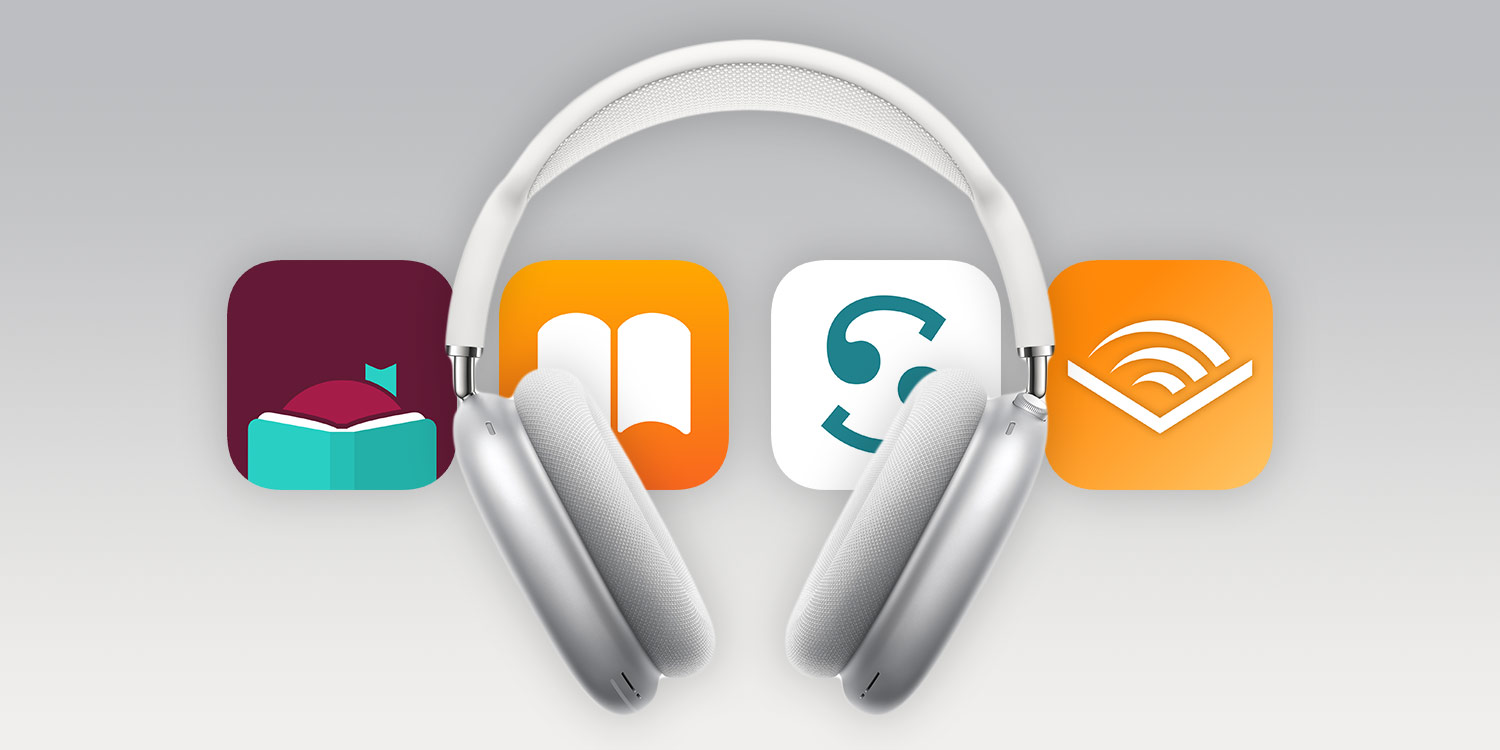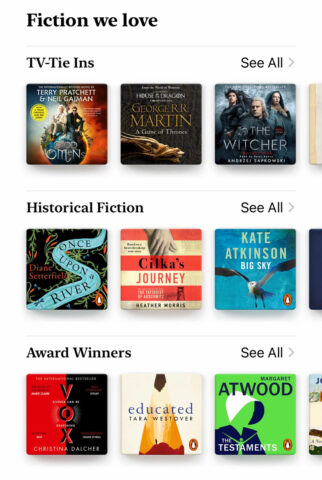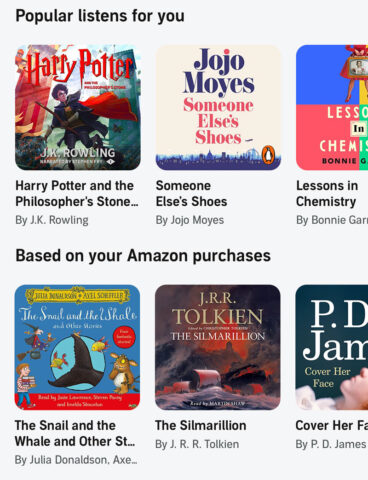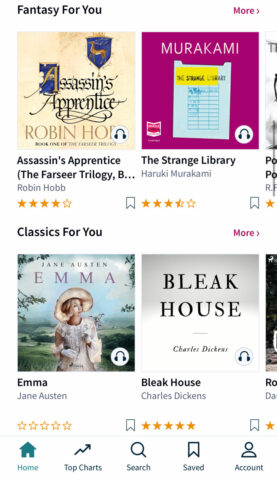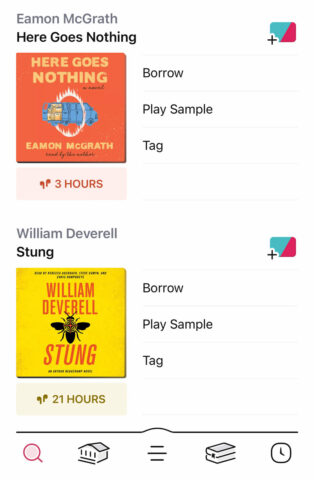Audiobooks are a great way to consume more books, allowing you to blast through Dune on the daily commute or absorb War & Peace while you tackle the washing up. But what’s the best way to access them?
Like printed books, you have plenty of choice, and ultimately the right answer will be different for everyone. Here, we’ll outline some of the most popular ways to get your hands on a selection of audiobooks, whether you’re looking to buy, subscribe, or borrow.
Buy
If you don’t mind paying retail price for most of your downloads, outright purchasing is probably your best bet. There’s no schedule, and you own everything you buy permanently.
On iPhone and iPad, the easiest solution is to head to the Audiobooks section of Apple’s own Books app and make a purchase. Payments are made with your Apple ID and existing payment methods, so there’s no extra setup, and everything just works. The app is pretty good for discovery, allows you to preview audio snippets, and offers occasional sales.
But also consider buying your audiobooks via Libro.fm, which allows you to support your local bookstore while making a purchase. They probably need your money more than Apple does. To do so, sign up, find your local bookstore, and a cut of every audiobook you buy will go their way. You can make ad hoc purchases whenever you like, or grab a subscription for 1 audiobook a month and 30% off any extras. Sadly, it’s only available in the US at the moment.
Subscribe
One of the most popular audiobook platforms is Amazon’s Audible, a subscription service that offers monthly credits to spend on whatever downloads you like. This (usually) works out considerably cheaper than purchasing outright.
Audiobooks you pay for with subscription credits are yours to keep forever. It’s a good system for steady consumers, but those with unpredictable needs might end up wasting credits – or needing more.
If you find yourself butting up against Audible’s limits – or wish to avoid supporting Amazon – it’s worth trying an alternative like Scribd.
A Scribd subscription is cheaper than Audible, allows unlimited listening*, and also grants access to a library of ebooks and comics in addition to audiobooks. If you want a one-stop subscription for all your bookish needs, it’s a great choice.
*Actually, Scribd’s terms suggest it may throttle your usage at 4 audiobooks per month. Not unlimited then, but probably enough for most people.
The downsides? Scribd’s audiobook library isn’t nearly as comprehensive as Audible’s, and you can’t keep any of the content once your subscription ends. Consider your priorities and pick what’s right for you.
Borrow
Libraries are such a fantastic resource that often go underused. Of course, you can pick up many audiobooks on a physical CD, but many people don’t know that most libraries these days allow you to “borrow” digital content without leaving your house.
See if your local library is partnered with the free Libby app, which allows you to access and track your rentals. You’ll need to log in with your regular library card for access.
If your local isn’t registered with Libby, ask if they use an alternative service and download the appropriate app. Audiobook availability will vary massively by location, but many have a rotating selection you can enjoy completely free.
Bonus: free audiobooks!
If you’re looking for classic literature, also consider browsing Librivox, a non-commercial project that provides recordings of public domain works. The audiobooks are recorded by volunteers and are available completely free.
Whichever route you choose, make sure to track those reads! See our Storygraph vs Goodreads article for more on how to choose a book-tracking app.
